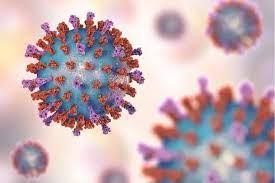A nurse is providing postmortem care for a client. Identify the sequence of actions the nurse should follow. (Move the steps into the box on the right, placing them in the order of performance. Use all the steps.)
Determine the family's preferences about care of the body.
Apply identifying name tags onto the client.
Verify that the provider has certified the client's death.
Remove all equipment and tubes from the client's body.
The Correct Answer is C,A,D,B
Verify that the provider has certified the client's death: Before any postmortem care is initiated, it's crucial to confirm that the client has indeed passed away. This verification is typically done by a healthcare provider, such as a physician or nurse practitioner, who examines the client, checks for signs of life, and makes an official declaration of death.
Determine the family's preferences about care of the body: After the client's death has been certified, the healthcare team should communicate with the family or next of kin to inquire about their preferences regarding the care of the deceased. Families may have specific cultural, religious, or personal requests regarding postmortem care procedures, and it's essential to respect and accommodate these preferences whenever possible.
Remove all equipment and tubes from the client's body: This step involves the removal of any medical equipment, devices, or tubes that may have been in use during the client's medical care. This can include items such as intravenous (IV) lines, catheters, ventilator tubing, and monitoring equipment. Ensuring that all equipment is removed is not only a matter of dignity but also helps prepare the body for viewing by the family, if desired.
Apply identifying name tags onto the client .To maintain accurate identification and tracking of the deceased client, it's common practice to attach identifying name tags or labels to the body. These tags typically contain essential information, such as the client's name, medical record number, and date of birth. This step helps prevent any confusion or mix-up of identities during postmortem procedures and transport.
Nursing Test Bank
Naxlex Comprehensive Predictor Exams
Related Questions
Correct Answer is B
Explanation
The guardian's observation about the child being withdrawn since the switch of daycare providers is particularly important. It suggests a change in behavior that could potentially indicate emotional or social difficulties.
The nurse should explore this further to gather more information and assess the child's well-being in the new daycare setting. It is essential to ensure the child's emotional health and address any potential issues that may be affecting their well-being and development.
Correct Answer is B
Explanation
Choice A Reason:
Requesting an x-ray of the preschooler's neck is not typically indicated for RSV. RSV primarily affects the respiratory system, and neck x-rays are not a standard diagnostic tool for this condition.
Choice B Reason:
Initiate droplet precautions are incorrect. This is the most appropriate action for RSV. RSV is primarily transmitted through respiratory droplets. Droplet precautions involve wearing a mask and maintaining a safe distance from the infected child to prevent the spread of the virus to others. It's a standard infection control measure for RSV.
Choice C Reason:
Monitoring the preschooler's urine for protein is not relevant to RSV. RSV primarily affects the respiratory system and does not typically cause kidney problems.
Choice D Reason:
Administering fluconazole is not indicated for RSV. Fluconazole is an antifungal medication, and RSV is a viral respiratory infection. Antifungal medications like fluconazole are not effective against viruses like RSV.

Whether you are a student looking to ace your exams or a practicing nurse seeking to enhance your expertise , our nursing education contents will empower you with the confidence and competence to make a difference in the lives of patients and become a respected leader in the healthcare field.
Visit Naxlex, invest in your future and unlock endless possibilities with our unparalleled nursing education contents today
Report Wrong Answer on the Current Question
Do you disagree with the answer? If yes, what is your expected answer? Explain.
Kindly be descriptive with the issue you are facing.
